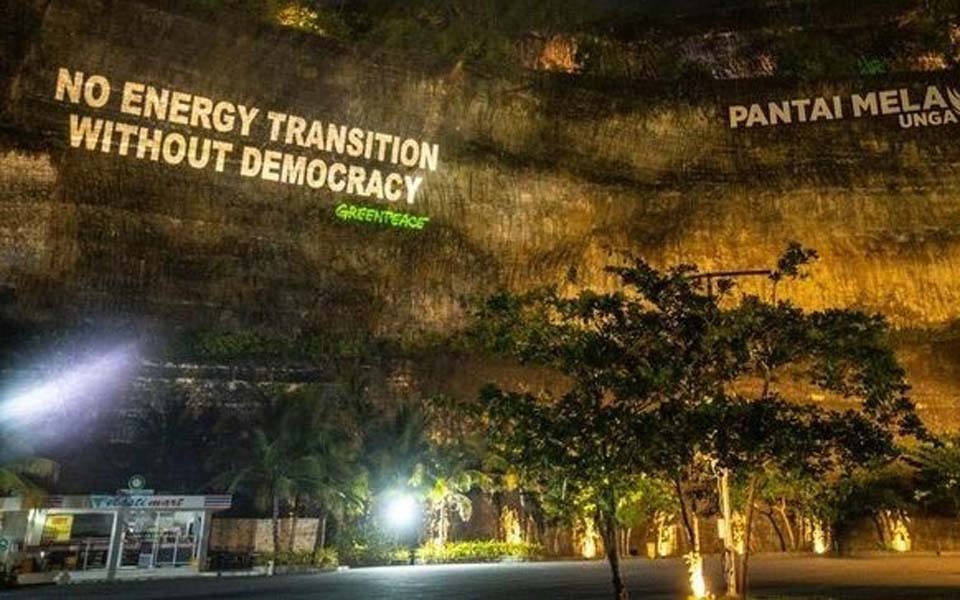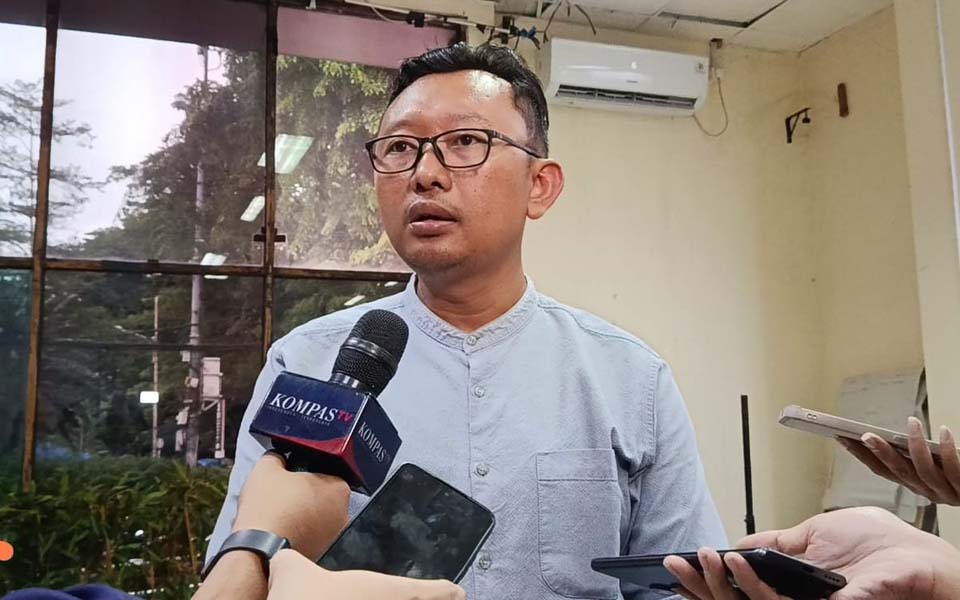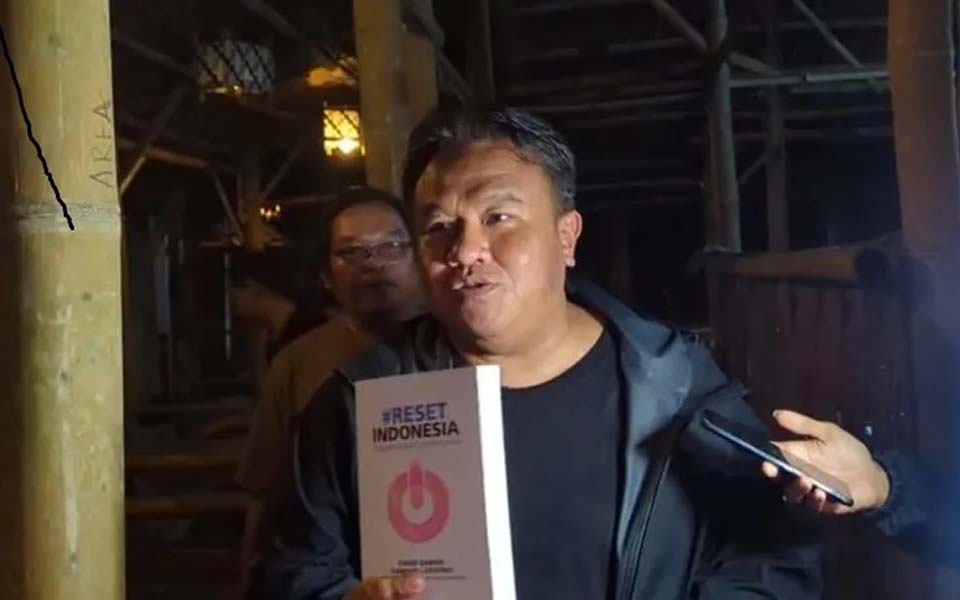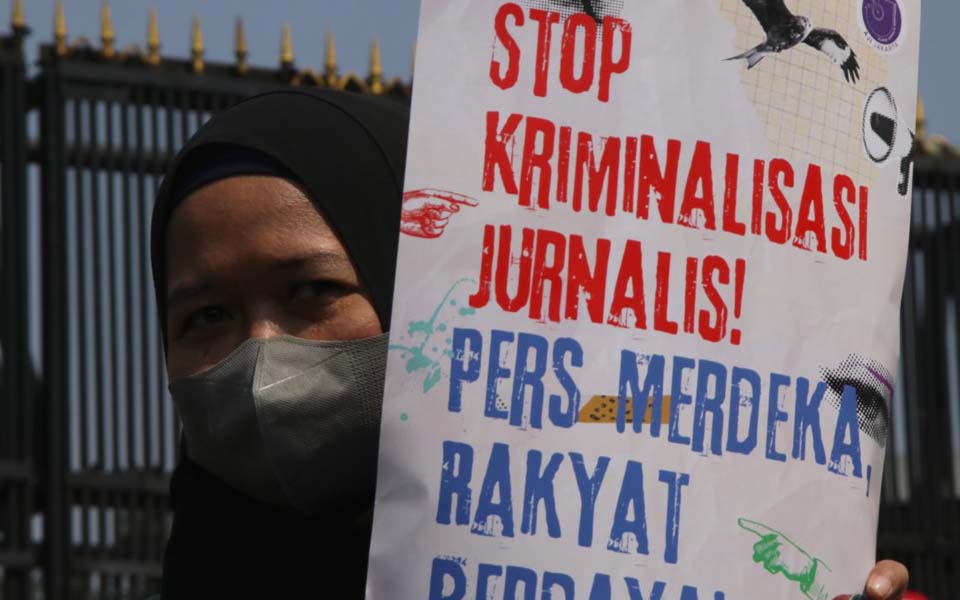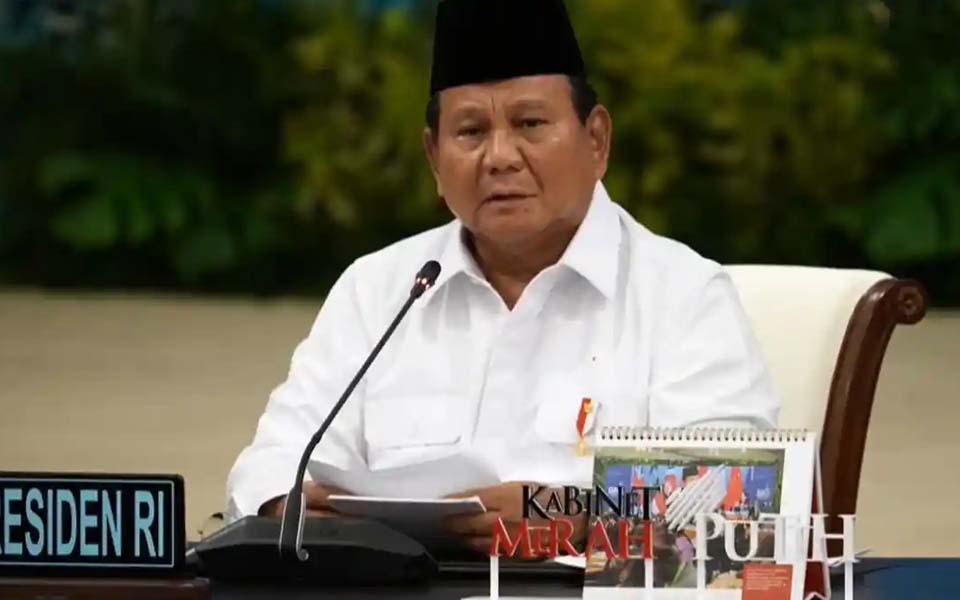Jakarta – Environment organisation Greenpeace says that the G20 Summit in Bali must take responsibility for accelerating the energy transition in order to prevent the impacts of the climate crisis which are already too big.
"Energy transition is something which is undeniably necessary right now, countries throughout the world are moving in that direction, including Indonesia. However it needs to be underlined that we must accelerate this transition in order to avoid the impacts of the climate crisis which is already becoming too great for the environment, humanity and prosperity. The G20 has a responsibility to ensure this happens", said Greenpeace Indonesia Climate Campaign head Tata Mustasya on Tuesday November 15.
In addition to this, the group believes that Indonesia, which held the G20 presidency in 2022, is still half-hearted in implementing the energy transition domestically.
Based on the State Electricity Company Energy Procurement Business Plan (RUPTL), said Mustasya, Indonesia will still be using coal in parallel with a staged phase out up until 2056.
On the other hand, the construction of 13.8 GW of new coal fired power plants (PLTU), around 42 percent of the currently installed PLTU capacity, will still continue.
Mustasya said that the policy on the construction of the new PLTUs is in contradiction with the need to accelerate the energy transition in order to halt the climate crisis by preventing the increase in global temperatures from exceeding 1.5 degrees Celsius.
Greenpeace also highlighted the Indonesian government's plan for the early retirement of 9.2 GW of PLTUs with international assistance by 2029. As many as 3.7 GW will be replaced by renewal electricity generation.
Mustasya said that it is time for other countries in the world to immediately abandon fossil fuels and accelerate the energy transition in order to halt the climate crisis.
The group quoted from the UN Scientific Panel on Climate Change (IPCC) which has emphasised that the world must close down at least 80 of operating PLTUs by 2030, and abandon coal totally by 2040 if it does not want to be trapped in a climate crisis.
Greenpeace is also highlighted that the energy transition being carried out by Indonesia and other G20 countries need to be free from false solutions such as co-firing and clean coal technology which will delay the energy transition.
"The process and mechanisms of this shift must also involve public participation, hold to democratic principles and justice. The G20 must be a solution for the acceleration of the energy transition, such as for example through funding platforms", said Mustasya.
Climate justice and energy transition
Greenpeace also highlighted the various forms of restrictions and intimidation against public participation in the G20 Summit which have occurred over the last few days.
This is not just seen as weakening the values and implantation of democracy in Indonesia, but also conflicts with the spirit of a just and fair energy transition.
The G20 Summit is seen as an opportunity for the biggest emission producing countries (emitters) to promote a just energy transition in concrete terms, particularly through adequate funding.
"The G20 leaders must ensure that the principles of climate justice are translated into an energy transition scheme which is fast and fair, which will abolish all use of fossil fuels", said Greenpeace South-East Asia Executive Director Yeb Sano.
The head of the Greenpeace delegation at the Climate Change Conference or COP27 also said that G20 countries contribute almost 80 percent to global emissions. Therefore they have a bigger responsibility in achieving the target of 1.5 degrees Celsius.
G20 commitment
On the other hand, European Union Commissioner for the Environmental, Maritime and Fishing Affairs, Virginiius Sinkevicius, explained that deforestation is continuing and is increasing.
The European Union, he said, has pledged to halt deforestation and oversee legislation on deforestation to ensure that we are responsible for what is consumed.
"Of course, there are things that must be done. I'm a big fan of mangrove restoration and the European Union supports this. I think that this is a good example for the world, to show that it's not just protection, but that efforts at restoration are also needed", Sinkevicius told CNN Indonesia TV not long ago.
The Indonesian government meanwhile, continues to focus on keeping down global temperature increases by launching the 2030 Low Carbon Indonesia operational plan for forestry and other land uses.
The United States government also supports this plan, saying that collaboration between the two countries is important in efforts to reduce greenhouse gas emissions. This is by means of safeguarding ecosystems, realising breakthroughs to optimise the absorption of carbon emissions through the restoration of peatlands and implementing energy transition.
The Indonesian government is said to need as much as US$1 trillion or 15,000 trillion rupiah in funds (assuming a 15,000 rupiah to the dollar exchange rate) to be able to achieve the energy transition through net zero emissions (NZE) by 2060.
This was conveyed by Energy and Mineral Resources (ESDM) Ministry Secretary General Rida Mulyana during the grand launching of the Indonesia Energy Transition Mechanism Country Platform in Bali on Monday November 14.
"For Indonesian itself, for the energy sector, the total investment which is needed is more than US$1 trillion up until 2060", said Mulyana. These funds, she said, are needed to create new energy sources which are environmentally friendly.
A number of new energy sources are currently and will be developed by the government to achieve clean energy, namely hydrogen, ammonia, wind and nuclear power.
But, this huge amount cannot be met through the state budget alone. Therefore, Indonesia needs financial support from the private sector.
Mulyana hopes that the private sector will see Indonesia's commitment and be willing to provide funding support. Moreover, energy transition is one of the most important global agendas. (pop/kid)
[Translated by James Balowski. The original title of the article was "Greenpeace Desak G20 Percepat Transisi Energi Cegah Krisis Iklim".]





